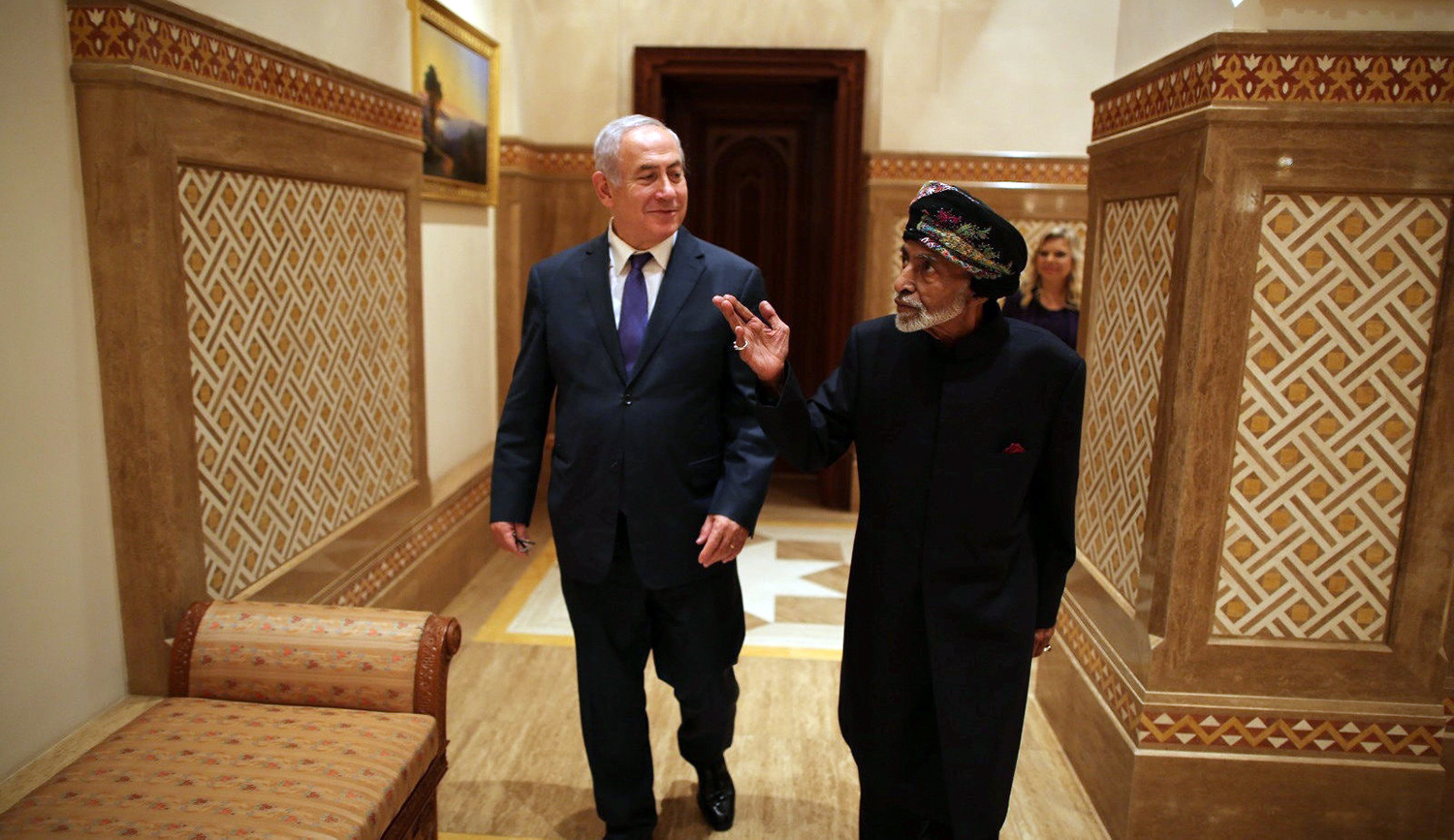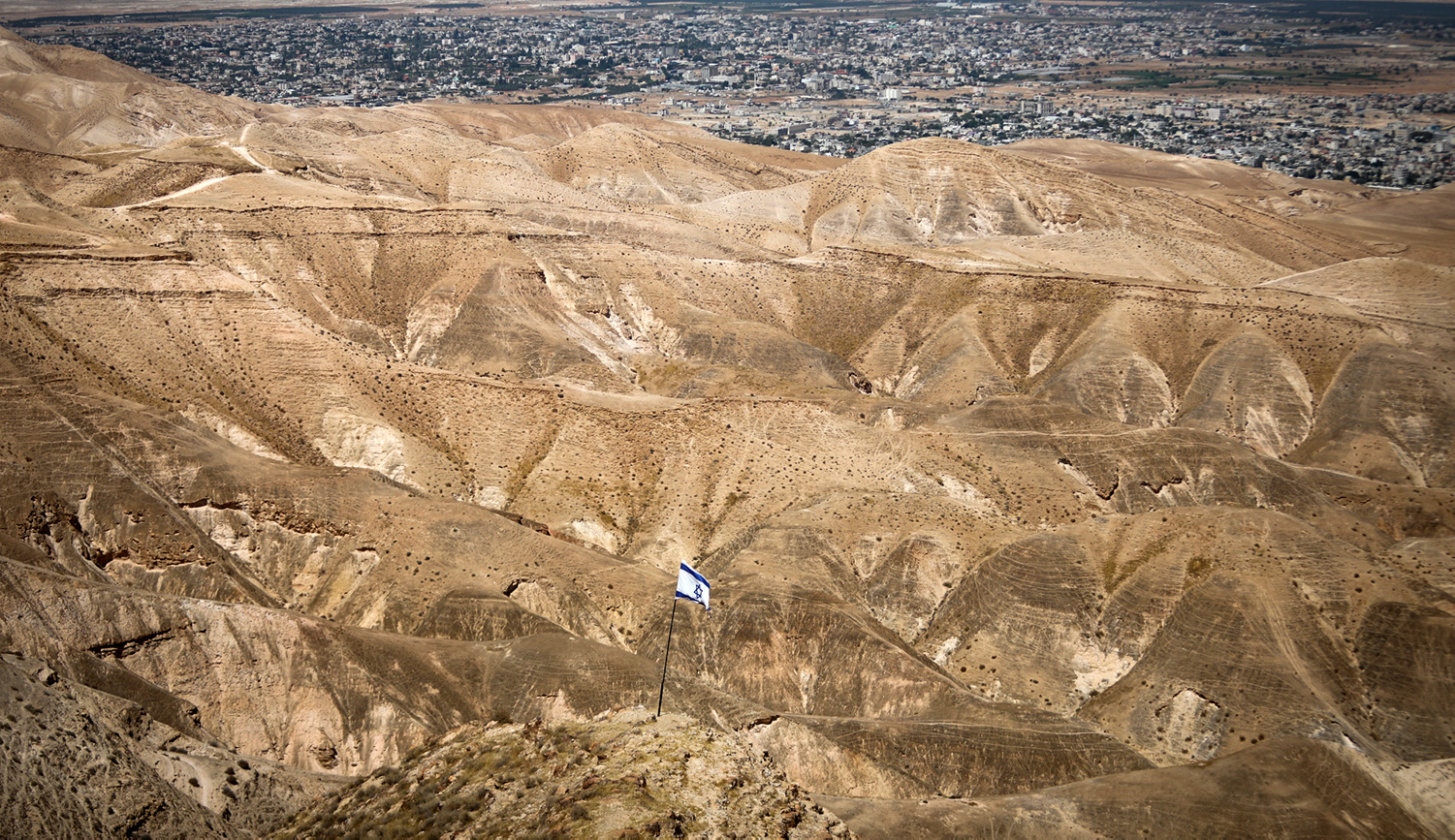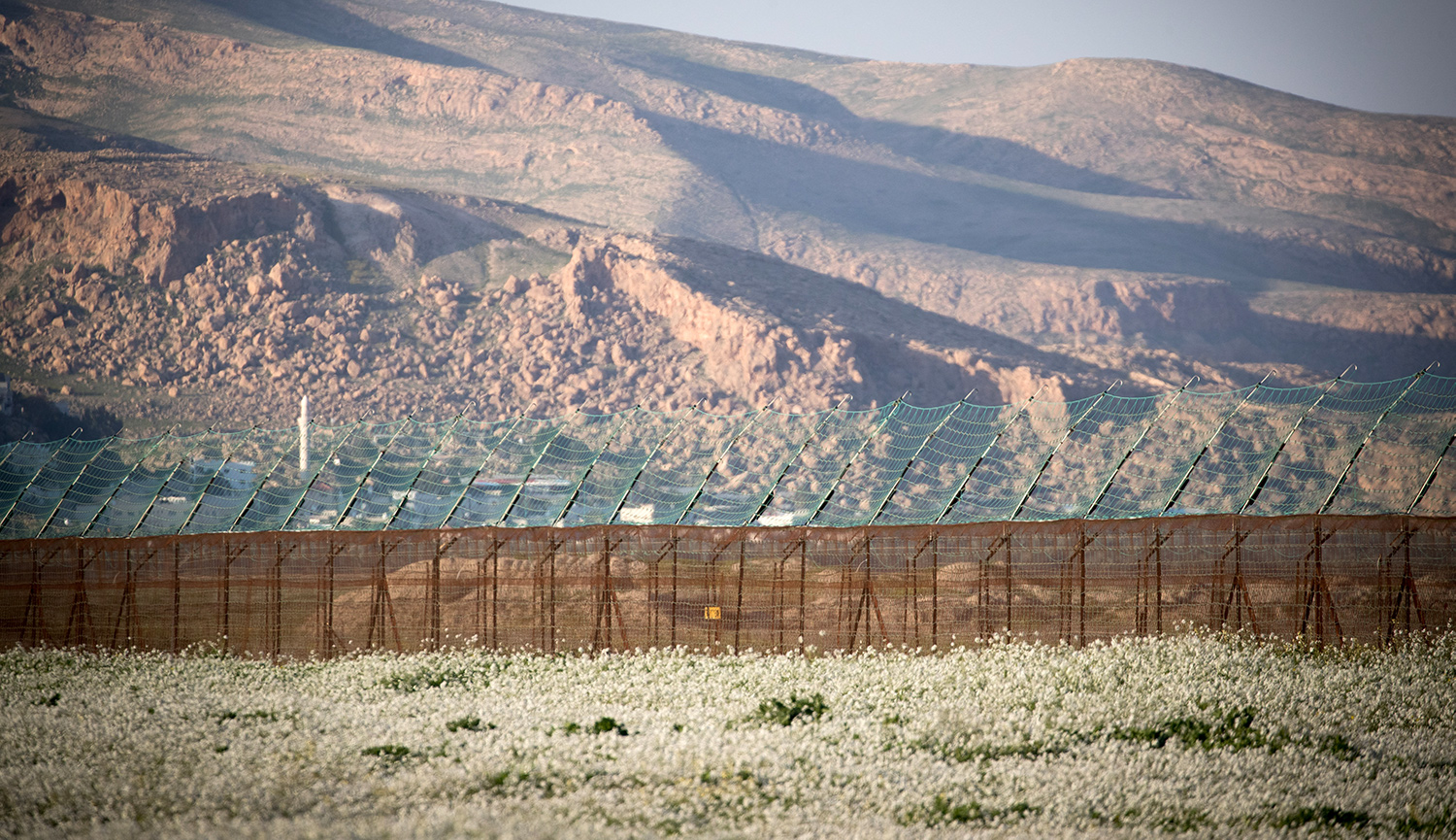The world moves slowly and then occasionally with astonishing celerity. The cause of Jewish self-determination has always had to be sensitive to such movements of history even if the Jews had little recourse to affect them. So it was that in the aftermath of World War I, and the attendant reconfiguration of the multinational empires where most Jews had lived, Zionists were able to maneuver themselves into an internationally recognized mandate for a Jewish national home in Palestine. And so it was with the establishment of the United Nations and the very temporary alignment of interests of the United States and Soviet Union in the Middle East that a legal imprimatur for statehood was advanced with the 1947 UN partition resolution. So it was again after the 1967 Six-Day War that a Security Council resolution was unanimously passed making clear that eventually the Arab states would need to make peace with Israel and could not hope to recover territories lost in war without doing so.
The early 20s of this century see similar dramatic shifts in global politics that have little to do with Israel. But Israel would be reckless not to use what may be a very temporary fluidity to its maximal advantage. The region has been upended by Iranian-Arab tension, which has driven at least some Arab states closer to Israel. The entire Arab state system has barely survived the twin shocks of revolution and counterrevolution following the so-called Arab Spring of 2011. The Middle East as a whole has been of declining importance to global superpowers for at least fifteen years. Israel-Palestinian violence has been almost negligible for the last six years. And the only superpower that still matters in the region is presently ruled by a president who tends to depart from longstanding policy commitments.
This very temporary alignment of the geopolitical stars opens windows of opportunity for Israel, even under a leader so risk-averse as Benjamin Netanyahu. And in some senses, Israel has already availed itself of the new possibilities. Pro-American Gulf monarchies, while not quite out of the closet in their relations with Israel, are now at least openly normalization-curious. Israel has finally achieved American recognition of its capital in Jerusalem as well as of its sovereignty on the Golan Heights. It has also turned what could have been a threatening development—an expanded EU with a bigger foreign-policy portfolio—into an asset by way of cultivating allies in Central Europe as reliable veto players on hostile initiatives (not just countries liberals love to hate like Hungary and Poland, but also Austria, the Czech Republic, Slovakia, Greece, and Cyprus).
Is this enough? Or should Israel maneuver to exploit this small opening to do what it didn’t do in the early 1990s and solidify a permanent, internationally recognized border that is as advantageous to its interests as reasonably possible? This is the temptation behind the move to annex some parts of the West Bank right now, without a peace agreement with the Palestinians, without international support, but with some kind of assent from a U.S. administration that is, for now, uniquely sympathetic to the West Bank settler project.
The current prospect of annexation does indeed open windows of opportunity for Israel, for its Western allies, and for even its Arab neighbors. Right now, unfortunately, the allies and neighbors appear more interested in indulging certain pieties and hypocrisies about Israel’s behavior than they are in resolving a situation they claim to abhor. But just because the discourse around annexation is so one-sided and so annoying doesn’t make annexation itself a good idea. Indeed, Israel too seems more intent on missing out on the opportunities this unique geopolitical moment affords in order to pursue instead an annexation project that will impose high costs and bring few rewards.
Let’s start with the pieties, currently three in number (though there are innumerable older ones), held by Israel’s friends and neighbors.
First, is the matter of borders. According to some, annexation is not just an affront but a downright war crime because Israel would be laying claim to “land outside its borders.” The only problem is that Israel’s eastern border, the so-called “Green Line” separating Israel from the West Bank, is not an international border and never has been one; it was a cease-fire line agreed upon at the end of Israel’s War of Independence between it and Jordan. There is, of course, no international norm that guarantees an old armistice line for a defeated party in a war it initiates, and the attempt to pretend otherwise isn’t quite a norm as much as it is an improvised indignation. To compare this with the situation in Crimea—in which Russia annexed a piece of land across a sovereign border, one internationally guaranteed in a treaty signed by Russia itself—as many have done is to make a brazen category error.
The second flexible piety concerns “final-status” issues. Israel and the Palestinians both committed in the Oslo Accords to do nothing that would prejudge negotiations on issues like statehood, Jerusalem, refugees, borders, security, and settlements. The vociferously voiced complaint now from foreign quarters is that any unilateral annexation would essentially settle one such final-status issue outside the framework of negotiations—it would be like, in other words, jumping into the race before the starting gun. And yet the same nations show no reticence about prejudging these issues themselves; many governments, including nearly all European states, have staked out positions on at least half of the list. Only on matters crucial to Israel—particularly refugees and security—is the piety about leaving the outcome up to the two main parties adhered to. Final-status piety, like Green Line piety, only matters some of the time—and you can almost always predict when that time is.
The third oft-repeated piety is that an Israeli annexation would irreversibly render the two-state solution impossible. It’s one of those statements that sounds really serious until you think about it for a few minutes and realize it is both historically and geographically wrong. There is nothing to suggest that because a territory is annexed it is never up for negotiation. For instance, Israel annexed the entire Golan Heights in 1981, and yet it entered into serious negotiations about withdrawing from the plateau in 1993, 1998, 2000, and 2007. And if the annexation is only of a few settlement blocs that were always destined to be a part of Israel in any agreement anyway, then there is nothing in it alone to make a viable Palestinian state impossible. It might weaken the Palestinian negotiating position (though even this is not clearly the case), but as the Palestinian side has consistently rejected compromise in favor of violence, only to find itself repeatedly defeated in each round of violence, it’s not obvious why this is a bad thing.
The insistence on these empty pieties occludes genuine opportunities for creative and constructive diplomacy. Here are but two of the major opportunities being missed.
If it is so important to the moderate Arab states that any annexation be stopped, as they claim it is, why won’t they take proactive steps to do so? Sunni states in the Gulf could take genuine public steps towards normalizing their relationship with Israel in exchange for stopping annexation, breaking in the process a decades-long stasis in the Middle East. If the Saudis and their allies opened embassies in Israel and began issuing visas and allowing for direct flights, every party in the Knesset except for the pro-settler Yamina (as of this writing, in opposition to annexation anyway) would support a freeze on annexation and maybe even a freeze on all settlement construction.
Such a move would have an impact on Palestinians as well as Israelis. It would indicate that the Arab world is no longer hostage to their irredentist demands, but would not foreclose Arab support for national Palestinian aspirations, and show them that normalizing relations with Israel need not be accompanied by Arab acquiescence to permanent Israeli occupation of the territories conquered in 1967. Indeed, the Arab nations would join many others around the world in opposing occupation, supporting Palestinian statehood, and still maintaining diplomatic and security relations with Israel.
There is no reason such an arrangement couldn’t also include a special role for certain Arab monarchs (say, the Saudi and Moroccan kings) to be recognized as symbolic custodians of holy Islamic sites in Jerusalem, similar to the Jerusalem clause in the Israeli-Jordanian peace treaty. If Jordan, Egypt, and the Gulf monarchies want to stop annexation while pursuing their regional interests, they have the ability to do so. Why not act?
Likewise European diplomats are livid at the Israel annexation plans. So why don’t they put more on offer than reflexive denunciation? This would be the opportunity for European diplomats to spearhead an initiative of coordinated unilateralism with the goal not of solving the conflict once and for all, but of creating the conditions for easing it in the short term and bringing about a fuller negotiated settlement in the long term.
It’s not difficult to imagine what such coordinated unilateralism might look like. European diplomats could broker an arrangement that allows both Israelis and Palestinians to save face honorably in light of actions they each need to take that the other side could tolerate but never publicly agree to. These could be discreetly moderated by a third party and, when implemented, be supported by some kind of international diplomatic recognition.
Specifically, from Israel the Europeans could seek as small an annexation as possible (with an agreed construction freeze in most settlements outside the annexed territories) and offer to recognize the new borders in some de-facto manner, and these could then be married to other incentives that have nothing to do with the Palestinian issue. On the other side, the annexation would be met by a provisional declaration of statehood by the Palestinians, it too recognized in some de-facto manner. Embassies would open in Ramallah (without prejudging the final status of Jerusalem, much as embassies to Israel are still located in Tel Aviv). Privately, assurances would be sought that the newly recognized state would maintain the security regime with Israel in place since the Oslo Accords and would not exploit existing international institutions in a manner that would inflame the conflict.
Fundamental problems would remain, of course. None of this would solve the problem of a renegade province in Gaza, and none of it would solve irreconcilable gaps between negotiators on issues like borders, refugees, and Jerusalem. There would still be a conflict (as there is in Cyprus and Kashmir). But we would be moving toward two states with a border conflict, rather than two peoples locked in a cosmic existential struggle. Careful diplomacy and measured steps could more likely emerge from such a conflict than from the status quo.
Europeans are thus squandering an opportunity to try to bring about a condition they wish to see. Entering into the complexities of negotiation would be more constructive than any of the condemnations and warnings on offer right now.
It can be maddening to watch the Palestinians sabotage their own self-interest to keep alive a pointless revenge fantasy. It can be frustrating watching the Arab states or the Europeans pass up opportunities for constructive diplomatic engagement that could benefit all parties. But what of the Israelis? It is, after all, Israel that is putting the annexation issue on the agenda at a time when it faces no major security challenges. What are Israel’s interests in the territories, and does annexing them actually further those interests?
Identifying what Israel’s potential interests in the occupied territories are is the first step in identifying what policies it should pursue. These interests are sometimes spoken of vaguely in terms of security or demography. But mapping them out conceptually—and then, less metaphorically, actually mapping them on a map—is not something that happens much in the internal Israel discourse. So let’s try it now. There are four identifiable interests, some of which overlap, some of which contradict each other.
The first is external security. Ideally, Israel would like to control the entire eastern border with Jordan and keep any potential invading forces as far from its coastal population center as possible. Territory which protects Israel’s external security might also be valuable to prevent smuggling of weapons, especially rockets, to places inside the territory which will end up under complete Palestinian control (or, in another scenario, in varying states of chaos). If this interest has a territorial expression in the West Bank, it is to be found in the Jordan Valley. None of this to imply that such an interest is absolute or worth the trade-offs necessary to secure it. (Many strategists see little benefit.) It is only to say that to the extent external security is a territorial interest, it would imply some kind of Israeli military presence in the Jordan Valley.
The second territorial interest also relates to security, not from threats external to the Israeli-Palestinian theater but rather internal to the territories themselves. Israel’s interests in the more densely populated areas of the West Bank include preventing rocket attacks on Israeli cities, blocking suicide and other terror attacks from being organized and planned, and averting a political and social collapse that could lead to widespread violence, warlordism, and interference in Israel’s internal politics through its large Arab minority. This interest would imply, in its maximalist versions, Israeli control of Palestinian cities, and, in a more restrained version, control of roads and freedom of action to make arrests, as has been the case since the end of the second intifada. Again, it’s not entirely clear (and many are unconvinced) that this particular interest is best pursued territorially, and even if it were, it is also clear that the price in most versions is so high to make it barely worth it. That’s not what’s important to the present discussion. What’s important is only to identify that there is a territorial expression related to internal security that manifests with a different territorial expression from the one connected to external security.
The third territorial interest is in improving Israel’s borders from the 1949 armistice lines. Until the late 1990s this was a common goal of most Israeli policymakers and it guided some, but by no means all or even most, of the logic of settlement building. The narrow and easily overwhelmed passage to Jerusalem was an area Israeli strategists dreamt of adjusting, as was Israel’s “narrow waist” along the coastal plain. Specific places where desired border adjustments animated intensive settlement efforts include areas to the east and north of Jerusalem, the Gush Etzion area west of Bethlehem, areas around the old “no-man’s land” in the Latrun salient, and areas to the east of the coastal city Netanya where the old borders were particularly narrow. Only in Gush Etzion and the areas north of Latrun (around the new Israeli city Modi’in and the West Bank settlement of Modi’in Ilit) has anything like demographic dominance been achieved.
The fourth territorial interest is settlement itself. This interest can manifest itself in a few political forms. There is the desire of some religious nationalists to settle lands in historically and religiously significant territories in the hope of keeping them for the Jewish people regardless of the diplomatic or democratic price of doing so. And there is the equally powerful desire of governments to minimize the financial and political cost of evacuating settlers. So if two pieces of territory are exactly equal in their value as measured in the other three interests, but one has a large settler population and the other does not, a government will prefer to withdraw from the one that does not.
The Gaza Strip provides the cleanest example of how each of the four interests interact. Well before the complete withdrawal instigated by Ariel Sharon in 2005, Israel withdrew from 80 percent of the Strip in 1994 in accordance with the Oslo I agreement. At that point it paid a heavy price in its second territorial interest (internal security) but received a package of Palestinian promises and international guarantees in exchange. No settlements were evacuated, not even the three isolated settlements of Morag, Kfar Darom, and Netzarim. These were kept as bargaining chips—which ultimately proved utterly worthless. Was anything at all gained for Israel in keeping these settlements for an additional eleven years? Is it possible that Israel might have been able to leave Gaza in a way that protected its external security interests and even allowed it to annex the three border adjustment settlements (Elei Sinai, Nisanit, and Dugit) had it not held on to the rest? We can’t know for sure. All we can know is that the refusal to confront the settler interest subordinated every other interest Israel might have had in the Strip (arguably, it had none anyway), so that ultimately Israel left everything it had there behind and got nothing in exchange.
These are the Israeli interests in the West Bank. Any Israeli initiative to change the legal status of territory in the West Bank—partial or widespread, negotiated or unilateral, with international backing or without—should be assessed by which of these interests it actually advances, which it sacrifices, and at what cost.
A prospective annexation in the West Bank can take many shapes, but if we can speak in broad categories there are really roughly two classes of annexations, which I will refer to using the technical terms big and small.
The big annexation involves painting huge sections of the West Bank map blue and creating a complicated system of enclaves and exclaves. The extreme version of this is the program that was identified in recent years with Naftali Bennett and Ayelet Shaked to “annex Area C.” The important thing to note about this plan is that it is a fraud. There is no real geographic entity in the West Bank called Area C. The A, B, and C areas of the Oslo II agreement are a complicated patchwork of legal arrangements. To “annex Area C” might sound like a partial annexation, but its practical import would imply a full annexation of the entire West Bank, resulting in more than 100 enclaves in which the majority Arab population would live without the most basic civil and political rights. Any additional words about the horror of this proposal would be superfluous.
The less extreme versions of the big annexation don’t put the Arabs in enclaves, but rather the Jews. In unofficial maps of the Trump administration’s proposal, there were at least 19 such enclaves, with many more territorial fingers running between them. This version would be morally as well as tactically indefensible. With what army will Israel defend a border hundreds and hundreds of kilometers long? And how does it intend to maintain any kind of quiet in the territory without a working Palestinian Authority? It is easy for a territory to descend into lawlessness and warlordism. In the Arab world, at least one country does every decade or so (Lebanon, Iraq, Syria, Yemen, Libya . . . ), and each one in turn becomes a base for international terrorist organizations. It takes years to undo such a process. What benefit can Israel possibly accrue by watching this happen to the West Bank, especially if it maintains nearly half a million of its own civilians there?
As the big annexation appears less and less appealing, versions of the small annexation are dominating the discussion (with the Israeli right blaming its centrist coalition partners for this development). The buzzword of the small annexation is “settlement blocs.” Some areas of intense settlement activity do constitute blocs, and some settlements do constitute opportunities for border adjustments. But these are not always the same. The Shiloh bloc of settlements for example exists entirely separate from any contiguity with the Green Line. The fabled “Ariel bloc” commonly adverted to by Israelis can’t actually be found on a map. The only way to lasso Ariel into sovereign Israeli territory would be to include a large Palestinian population or draw a finger of more than 100 kilometers to snake around populated valleys—and all to replace a straight and defensible boundary of less than twenty kilometers.
If the small annexation program is pursued to its logical extent—that is, only minor border adjustments where there is demographic dominance—it will quickly become apparent that Ariel is not an option and many Jerusalem suburbs aren’t either. So Israel will end up annexing bits of Gush Etzion, the settlements around Modi’in, and maybe Ma’aleh Adumim. We are talking about, at most 4 percent of the West Bank (probably less), and all areas widely understood to be a part of Israel in any future peace deal.
This is a shockingly tiny payoff for a political initiative that risks so much that Israel has achieved diplomatically in the last decade. If the annexation debate forces Israelis actually to peer at a map and see how little we have gained by subordinating our national interests to the messianic fantasies of the settlers, then that might be a good thing. But otherwise there is no appreciable benefit to the whole affair.
The current diplomatic circumstance for Israel is a uniquely propitious one. It might pass and vanish, and soon. There is no doubt that Israel would be well served to exploit it to the maximum. And there is no doubt that any move Israel might make may well have a price attached to it. Using this propitious moment for a disastrous big annexation would be so self-defeating and self-destructive that we might very well lose our right to judge the Palestinians for rejecting the 1947 partition plan. And using it for a small annexation would be so pointless, with such a minuscule benefit at the risk of such a high diplomatic and security cost, that it can scarcely be believed that this is the best Israel’s leaders have come up with.
From much weaker positions at Versailles in 1919 and at Lake Success in 1947, earlier generations of Zionist leaders achieved a great deal. They didn’t have a state, but still had a coherent sense of raison d’état. This generation does have a state, and a complex web of interests and opportunities that come with it. It should be guided by those and not the fantasies of a real-estate cult, one with little sense of what a state is, how hard it was to achieve, and how much they are risking its survival.
More about: Annexation, Examining Israel’s Eastern Borders: A Symposium, Israel & Zionism








